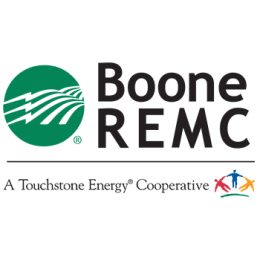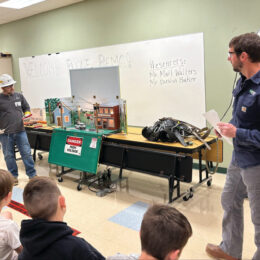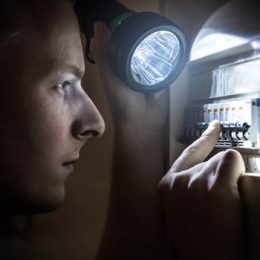
National Preparedness Month is an observance each September to raise awareness about the importance of preparing for disasters and emergencies that could happen at any time.
While we pride ourselves on reliability, there are several factors outside of our control such as storms, animals and transmission issues that impact our ability to deliver or quickly restore power.
As your electric provider, Boone REMC would like to share with you the tips below from the Federal Emergency Management Agency in the case of extended power outages:
- Take an inventory now of the items you need that rely on electricity. Make backup plans, including relocation plans, if you have medical equipment or assistive technology devices that are dependent on power for life-sustaining purposes.
- Plan for batteries and other alternatives to meet your needs when the power goes out.
- Install battery-powered (or electric with battery backup) smoke detectors and carbon monoxide detectors in central locations on every floor of your home and outside of bedrooms.
- Keep mobile phones and any battery-powered devices charged, and make sure you have backup charging methods, such as a car charger.
- Keep your car’s gas tank full. If you use your car to charge devices, do not leave the car running in a garage, partly closed space, or near a home to avoid carbon monoxide poisoning.
- During a power outage, only use flashlights for lighting. Avoid using candles, as they could be a fire hazard.
- Review your household power outage supplies. Ensure you have at least one flashlight with extra batteries per household member and a ready supply of nonperishable food and water.
- Turn off or disconnect appliances and other equipment to protect them from quick power surges. Whenever possible, use surge protectors.
- Generators, camp stoves and charcoal grills should always be used outdoors and at least 20 feet away from windows. Never use a gas stovetop or oven to heat your home.
- Check on your neighbors. Older adults and young children are especially vulnerable to extreme temperatures.
- Keep perishable food cold to avoid illness. Keep a thermometer in your refrigerator and freezer to monitor the temperature. When in doubt, throw it out! Throw away any food that has been exposed to temperatures 40 degrees Fahrenheit or higher for two hours or more, or that has an unusual odor, color or texture.
- If the power is out for more than a day, discard any medication that should be refrigerated, unless the drug’s label says otherwise.
For more preparedness tips for before, during and after disasters, visit ready.gov.



